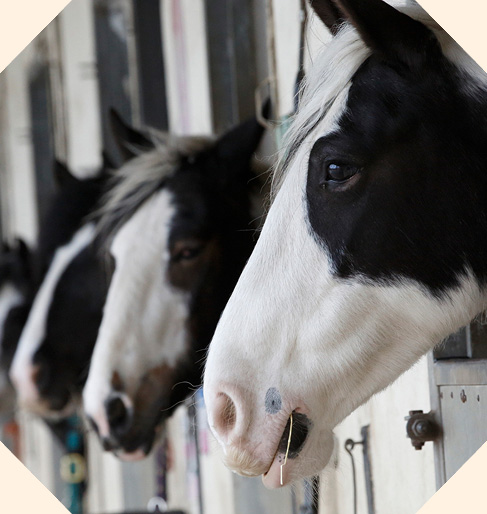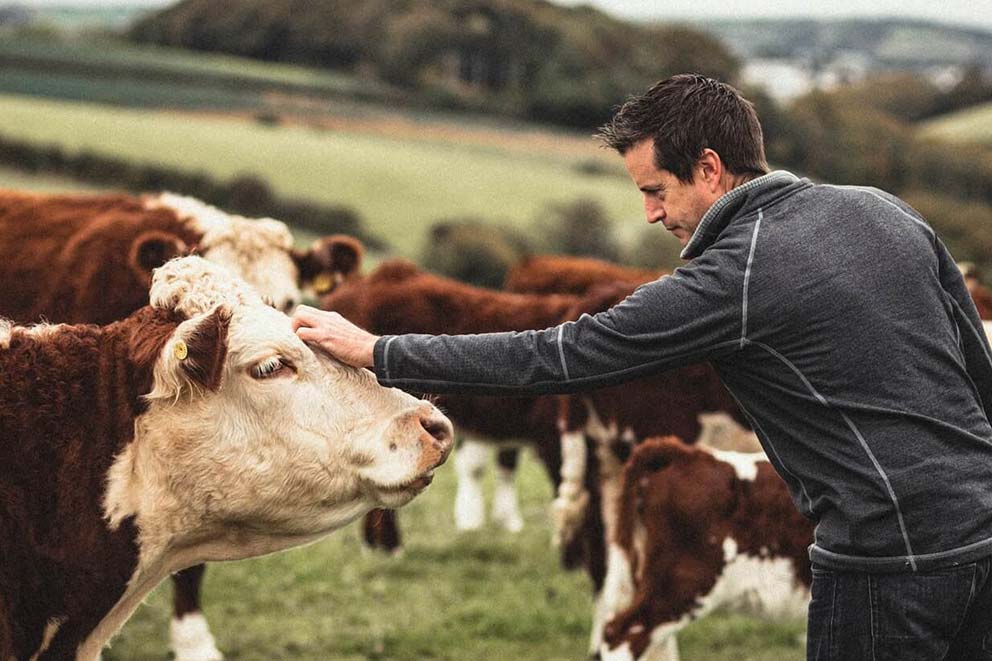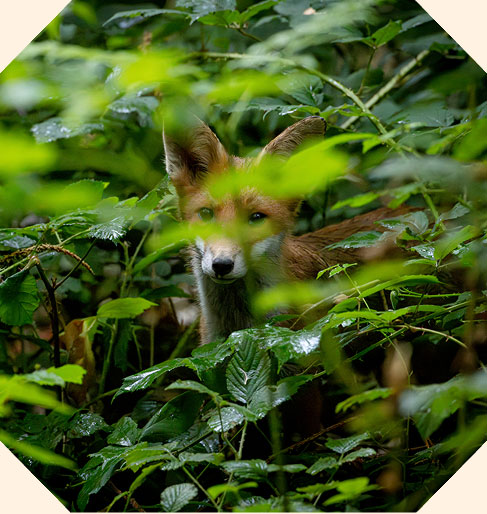Horses, farm animals, wildlife and fireworks
The noise levels of fireworks might be tolerable for people, but animals have much more sensitive hearing than we do. Firework bangs and flashes can be terrifying for outdoor creatures like horses, farm animals and wildlife, leading to stress, injury and even death in worst case scenarios.
Fortunately, there are many things you can do this fireworks season to put the wellbeing of horses, livestock and wildlife first.

Horses and fireworks
Horses are regularly spooked by fireworks, known to take flight when afraid or startled, often colliding with fences, buildings or other harmful objects as they flee.
In a UK and US study conducted in 2022 on the impact of noise anxiety on horses – such as the noise of fireworks – 22% of horse owners reported unusual behaviours during fireworks, including running, sweating, and restlessness. These unpredictable, high-intensity events put both horses and their handlers at serious risk.
Thankfully, there are things you can do if you’re a horse owner, to keep your horses safe during this period.
Public and private displays
If you’re thinking of having a fireworks display in your garden, consider attending public community displays instead, which will reduce the amount of firework noise and the detrimental impact on nearby animals.
If you still want to go ahead with a private display, please talk to your neighbours, and warn them of your date and timings, so they can prepare their animals.

Before fireworks
- Find out in advance: Check to see if there are any firework displays in your area, whether that’s a neighbour’s private display or public community events.
- Talk to the organisers: Where possible, explain there are horses nearby and ask them to set off their fireworks in the opposite direction.
- Get advice from the British Horse Society (BHS): For top tips on keeping your horse safe and secure during the firework season.
- Desensitise your horse: Introduce firework noises by playing them at low volume, then gradually increasing the volume so your horse can get used to the sound.
- Talk to your vet: If you know your horse has reacted particularly badly to fireworks in the past, ask your vet about the options to help them.
- Make sure your yard is safe from fire: Reduce the risk of a fire starting by emptying your muck heap and clearing away any unused hay, straw or other combustible material. Make sure you have a fire evacuation plan in place.
- Make your yard safe from injury: Check your stables for anything your horse might hurt themselves on – protruding nails, sharp edges, or slippery surfaces, for example. Secure all the fences and gates to help prevent your horse from escaping.
During fireworks
- Try to stay calm: Your horse will sense if you’re feeling anxious and panicked.
- Keep to your horse's routine: Stick to your daily habits. However, if you know when fireworks are starting, try to stay with your horse for support.
- Play music to soften the sounds: Classical music, for example, can be calming and mask the noise.
- Set up a rota to check on the horses: If you share a yard with others, create a schedule to check on the horses during the firework events.
- Report any incidents that happen to the BHS: This helps them collect evidence of common incidents and work towards making positive changes for equestrians and their horses.
After fireworks
- Check your horse for injuries: Even if they seemed fine during the fireworks, they may have run into something during a moment of panic.
- Check your yard for debris: Stray fireworks may have landed there, in the fields or water troughs, and these could lead to injury or contamination.
If you’re unsure whether to keep your horse in their stable or not, consider where your horse prefers spending their time. Some feel safer outside with room to roam, and some prefer the safety of indoors. If you do stable them, remove anything they may get tangled in, like hay nets and buckets, if startled or spooked.

Fireworks set back horse recovery
Foxy, a horse at the therapeutic riding centre, Foxfields, suffered severe stress and damage to her hind leg after a private firework display caused her to repeatedly kick the walls in fear.
Livestock and fireworks
Other outdoor animals often traumatised by fireworks are farm animals and livestock. With many public firework displays taking place in open fields, it’s no surprise that this impacts nearby farm animals, causing cows and sheep to panic, try to flee and even injure themselves.
In 2024, a pregnant cow on Cornish farmer Giles’ farm experienced a prolapse due to the stress induced by fireworks. The prolapse was treated on the farm; however, it sadly led to miscarriage.
And it’s not just cows and sheep, but pigs, hens and chickens that feel that same fear. Hens and chickens instinctively huddle together when afraid, which can lead to some being smothered in the chaos.

If you’re a farmer, follow these tips to help ease your animals through this period:
Before fireworks
- Check and reinforce fencing and enclosures where necessary: This reduces the risk of panicked animals escaping.
- Engage with neighbours and the local community: Alert them to the presence of livestock on the land and the impact fireworks can have. Find out if they’re planning any firework displays and let them know your concerns.
- Arrange company: Where practical, arrange for an experienced stockperson (who your animals are familiar with) to stay with them when fireworks are going off.
- Play music to your animals: This helps to soothe the animals and reduce stress. Starting this in the run-up to fireworks season allows animals to get used to having music playing in the background.
- Check your livestock regularly for signs of distress: Stay close and keep your eye on them, so you’re able to step in if they’re showing signs of stress or injury.
- Check for debris: Firework debris is likely to land in your fields if a display has been held nearby – this can be dangerous to your animals.
Before fireworks
Before fireworks
Did you know
It’s illegal to light fireworks near fields and barns where animals are kept.
Yet, despite it being illegal, livestock continue to be frightened in this way every fireworks season.
Fireworks don’t just distress pets and horses — they also cause harm to wildlife. Loud bangs and bright flashes can cause birds to abandon roosts, mammals to flee into danger, and nocturnal animals to lose vital feeding time, with lasting impacts on their survival.
Wildlife and fireworks
Many of us worry about the harmful effect fireworks might have on our pets or livestock – but the noise can also impact wildlife.
Birds, wild rabbits, squirrels, foxes, badgers, hedgehogs, deer – and all the rest. These are the creatures that don’t have an owner to prepare a safe space for them, to ensure nobody sets off fireworks near their habitats or to play soothing music to cover the noise.
But fireworks are a people-made-problem, so it’s up to us to provide the solution. There are plenty of ways you can help protect wildlife during the fireworks season:
During fireworks
- Steer clear of known habitats: If you’re hosting a display, ensure you’re nowhere near sites where you know animals may be nesting, such as lakes or beside trees.
- Check bonfires for wildlife before lighting: Animals like hedgehogs often use them for shelter or hibernation.
- Pick up any firework litter: Once it’s cooled down, go around and collect any firework debris, submerge it in water, and dispose of it safely. If left, it can damage, burn or even kill animals that may find it.
- Don’t use sky lanterns: (also called paper lanterns): Paper lanterns aren't safe for animals or the environment. They can injure or even kill animals, and the open flame can set animal habitats alight.





